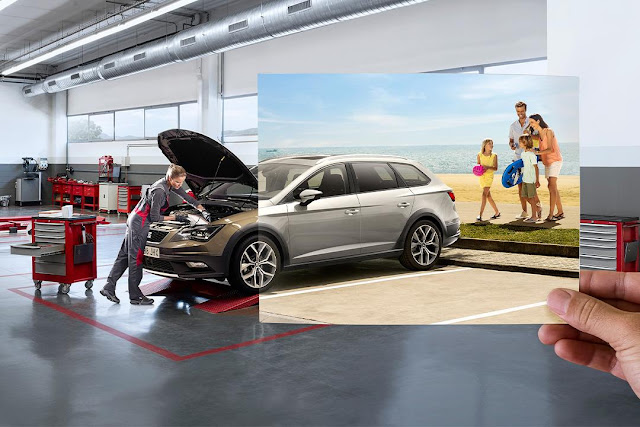Quality Assurance: Ensuring Peace of Mind When Buying Used Cars for Sale
Purchasing a used car can be a daunting process filled with uncertainties. The importance of quality assurance in this context cannot be overstated. Ensuring that a used car has undergone thorough checks and verifications brings peace of mind and confidence in your purchase.
The purpose of this blog is to provide a detailed guide on how to ensure quality when buying a used car, so you can drive away knowing you've made an informed decision.
Understanding Quality Assurance in Used Car Purchases
What Is Quality Assurance?
Quality assurance, in the context of buying Coffs Harbour used cars for sale, refers to the process of ensuring that the vehicle meets specific standards of safety, reliability, and value before making a purchase.
This involves a series of checks and verifications designed to uncover any potential issues that could affect the vehicle's performance or longevity. Quality assurance is crucial because it helps to identify hidden damages, confirm the car's history, and verify its condition.
Why It Matters?
When purchasing a used car, several common concerns arise, such as hidden damages, previous accidents, and the overall reliability of the vehicle. Quality assurance addresses these concerns by providing a comprehensive inspection and verification process.
This not only builds buyer confidence but also ensures that the vehicle you are investing in is safe and reliable. By following a structured quality assurance process, you can avoid costly repairs and unexpected issues down the line.
Key Steps to Ensure Quality When Buying a Used Car
Step 1: Research and Preparation
Identifying Your Needs
Before you start searching for a used car, it's essential to identify your specific needs. Consider the following questions:
- What is your budget?
- What type of car are you looking for (sedan, SUV, truck, etc.)?
- What will the car primarily be used for (commuting, family trips, etc.)?
- Are there any specific features or specifications you require (fuel efficiency, safety features, etc.)?
By clearly defining your needs, you can narrow down your options and focus on finding the vehicle that best suits your requirements.
Finding Reliable Sellers
Once you know what you're looking for, the next step is to find reliable sellers. Here are some tips to help you find reputable dealerships and private sellers:
- Look for dealerships with a good reputation and positive reviews.
- Check online ratings and feedback from previous customers.
- Ask for recommendations from friends, family, or colleagues.
- Consider certified pre-owned programs offered by manufacturers.
Doing your homework on sellers ensures that you are dealing with trustworthy sources, reducing the risk of encountering fraudulent or dishonest practices.
Step 2: Vehicle History Check
Obtaining a Vehicle History Report
A vehicle history report is an invaluable tool when purchasing a used car. It provides detailed information about the car's past, including:
- Accident history
- Title status (clear, salvage, rebuilt)
- Previous ownership and mileage records
- Service and maintenance history
- Any recalls or safety issues
Obtaining a comprehensive report helps you make an informed decision by revealing any hidden issues that could affect the car's performance or value.
Verifying Ownership and Documentation
It's crucial to verify the ownership of the vehicle through proper documentation. Make sure you review and confirm the following documents:
- Title and registration
- Bill of sale
- Service records
- Any warranty or insurance documents
Ensuring that all paperwork is legitimate and complete protects you from potential legal issues and guarantees that the transaction is transparent and straightforward.
Step 3: Physical Inspection
Conducting a Thorough Visual Inspection
Performing a visual inspection of the vehicle is an essential step in the quality assurance process. Use the following checklist to guide your inspection:
- Examine the body condition for dents, scratches, and rust.
- Check the paintwork for any inconsistencies or signs of repainting.
- Inspect the interior for wear and tear, including seats, dashboard, and upholstery.
- Ensure all lights, signals, and electronic components are functioning correctly.
A detailed visual inspection helps you identify any cosmetic or minor issues that may need addressing and gives you a better understanding of the car's overall condition.
Professional Mechanical Inspection
While a visual inspection is important, a professional mechanical inspection is crucial for assessing the car's functionality. Hiring a certified mechanic to inspect the car offers several benefits:
- They can identify any underlying mechanical issues that may not be immediately visible.
- They assess key components such as the engine, transmission, and brakes.
- They provide an expert opinion on the car's overall condition and potential future repairs.
A professional inspection ensures that the car is mechanically sound and safe to drive, giving you confidence in your purchase.
Step 4: Test Driving the Vehicle
Planning Your Test Drive Route
A test drive is an essential part of the buying process as it allows you to experience the car's performance firsthand. Plan a route that includes various driving conditions, such as:
- City streets with stop-and-go traffic
- Highways for high-speed driving
- Curvy roads to test handling and suspension
By test-driving the car in different conditions, you can evaluate its performance, comfort, and handling more effectively.
What to Observe During the Test Drive
During the test drive, pay attention to the following aspects:
- How the car handles and responds to acceleration and braking
- The smoothness of the ride and the suspension's ability to absorb bumps
- Any unusual noises or vibrations from the engine, transmission, or suspension
- The functionality of features such as air conditioning, heating, and infotainment system
Observing these factors during the test drive helps you identify any potential issues and ensures that the car meets your expectations in terms of performance and comfort.
Additional Considerations
Warranty Options
When purchasing a used car, it's important to consider the available warranty options. There are several types of warranties you can explore:
- Manufacturer's Warranty: Some used cars may still be under the original manufacturer's warranty, offering coverage for certain repairs and services.
- Certified Pre-Owned (CPO) Warranty: CPO vehicles often come with extended warranties provided by the manufacturer, covering a range of components and services.
- Extended Warranty: You can purchase an extended warranty from third-party providers, which offers additional coverage beyond the original warranty period.
Having a warranty provides added peace of mind and financial protection against unexpected repairs, ensuring that your investment is safeguarded.
Financing and Insurance
Financing and insurance are critical considerations when buying Coffs Harbour used cars for sale. Here's an overview of your options:
Financing Options
There are several ways to finance your used car purchase:
- Bank or Credit Union Loans: Obtain a loan from your bank or credit union, which typically offers competitive interest rates and flexible terms.
- Dealer Financing: Many dealerships offer financing options through their partnerships with various lenders. This can be convenient but may come with higher interest rates.
- Personal Loans: Consider taking out a personal loan if traditional auto financing options are not suitable.
Ensure that you compare different financing options to find the best terms and rates that fit your budget.
Insurance Coverage
Comprehensive insurance coverage is essential for protecting your used car. Consider the following types of coverage:
- Liability Coverage: This is mandatory and covers damages to other vehicles or property in the event of an accident where you are at fault.
- Collision Coverage: Covers repairs to your vehicle in case of an accident, regardless of fault.
- Comprehensive Coverage: Protects against non-collision-related damages, such as theft, vandalism, or natural disasters.
- Uninsured/Underinsured Motorist Coverage: Provides protection if you are involved in an accident with a driver who lacks adequate insurance.
Having comprehensive insurance coverage ensures that you are financially protected against various risks, giving you peace of mind while driving your used car.
Conclusion
Quality assurance is a critical aspect of purchasing Coffs Harbour used cars for sale. By following the key steps outlined in this guide, including researching and preparing, obtaining a vehicle history report, conducting thorough




Comments
Post a Comment